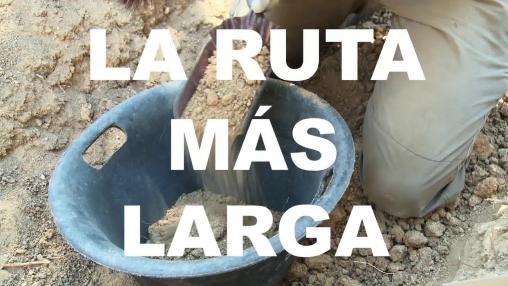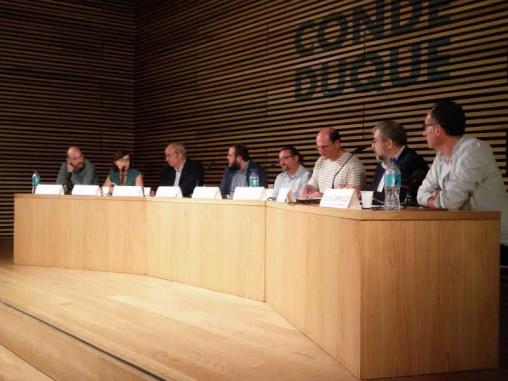La ruta más larga (The longest route)
On Saturday October the 14th 2017, at 12:00, the artists Iratxe Jaio and Klaas van Gorkum are organising a round-table discussion at the Conde Duque Cultural Center in Madrid, with archaeologists, anthropologists, historians and journalists, about the problems caused by the lack of a common historical narrative on the Spanish Civil War and Franco's dictatorship.
The discussion will revolve around a specific case study: the procedures that are applied to the remains of 13 anonymous soldiers from the Spanish Civil War, encountered during archaeological excavations in Guadalajara between 2012 and 2013.
Should they be buried in individual and distinct graves? What epitaph should be applied to the unidentified remains? What kind of ceremony would be appropriate, today? By sharing these questions with the public, the artists hope to trigger a necessary debate on the place of this part of history in a democratic and contemporary society.
The round-table has been organized together with the Office for Memory and Human Rights of the Madrid City Hall, and the archaeologist Alfredo González Ruibal from INCIPIT-CSIC, with whom the artists have been working for over three years in the framework of the European project NEARCH at the Van Eyck Academy.
The round-table will be moderated by the art historian Jesús Carrillo and will include, among others, Juan Pablo Calero (historian), Pedro Corral (journalist and writer), Francisco Ferrándiz (anthropologist), Alfredo González-Ruibal (archaeologist), Queralt Solé (historian) and Guillermo Zapata (councilor of the City Hall of Madrid).
The remains of the 13 soldiers are currently stored in boxes inside the laboratory of INCIPIT-CSIC in Santiago de Compostela. They will be brought to Madrid for the round-table discussion and then travel on to be buried in Abánades, the municipality where they were originally found.









